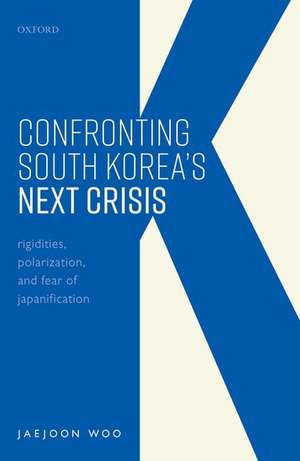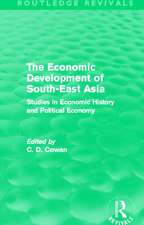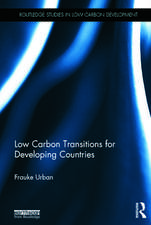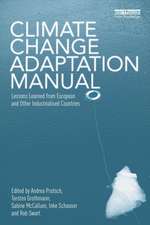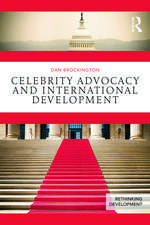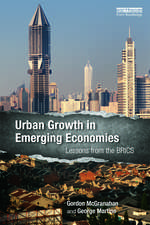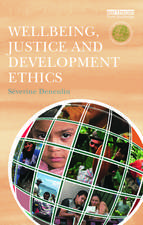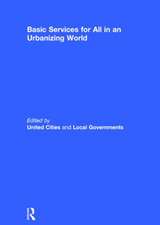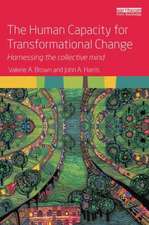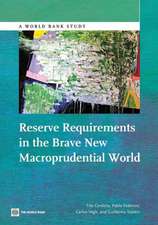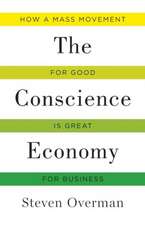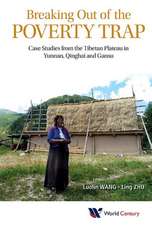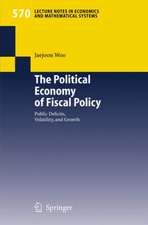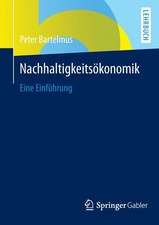Confronting South Korea's Next Crisis: Rigidities, Polarization, and Fear of Japanification
Autor Jaejoon Wooen Limba Engleză Hardback – 27 mai 2022
Preț: 856.58 lei
Preț vechi: 1033.85 lei
-17% Nou
Puncte Express: 1285
Preț estimativ în valută:
163.91€ • 175.27$ • 136.66£
163.91€ • 175.27$ • 136.66£
Carte disponibilă
Livrare economică 17-22 martie
Preluare comenzi: 021 569.72.76
Specificații
ISBN-13: 9780198864424
ISBN-10: 0198864426
Pagini: 656
Dimensiuni: 160 x 240 x 40 mm
Greutate: 1.06 kg
Editura: OUP OXFORD
Colecția OUP Oxford
Locul publicării:Oxford, United Kingdom
ISBN-10: 0198864426
Pagini: 656
Dimensiuni: 160 x 240 x 40 mm
Greutate: 1.06 kg
Editura: OUP OXFORD
Colecția OUP Oxford
Locul publicării:Oxford, United Kingdom
Recenzii
Jaejoon Woo has done a masterful and sophisticated job of analyzing why the economy has slowed and what it will take to sustain growth into the future. His analysis will be of interest to anyone wishing to understand the contemporary Korean economy. It should also be of interest to anyone concerned with similar challenges facing many other advanced economies at this time.
South Korea's extraordinary economic transformation in a matter of a few decades is well known and much acclaimed. Less familiar to outsiders is South Korea's present malaise - the product of a faltering economy, rising inequality and social polarization, and divisive politics. This excellent book not only tells the story with great skill, but also points the way to a more hopeful, more vibrant economic future. Jaejoon Woo confronts the challenges facing South Korea with detailed empirical work and good policy sense. He shows that addressing these challenges will require a state that is no less active than in the past, but focused on new priorities such as social inclusion, labor market dynamism, and service-sector productivity.
Jaejoon Woo reviews the East Asian 'miracle' of Korean economic growth with rigorous economic analysis and keen insight. His prescience then guides the readers on how the country can overcome the present obstacles of structural rigidity and social polarization to take off yet again without succumbing to the trap of Japanification. The book is the study of Korean experience and prospects; yet, the solution offered by the author can apply to all countries seeking to leap toward the new phase of economic development. I recommend this book to academics, policymakers, and anyone interested in economic growth and overcoming crises.
This book presents almost an encyclopedia-like account of recent developments as well as policy challenges of the Korean economy. Based on a large set of data and an in-depth knowledge of the inner workings of the system, Jaejoon Woo presents his own rigorous analysis and work experience in plain language, thereby making them accessible to a wide range of audience. I would strongly recommend this book to anyone who is more than casually interested in the Korean economy.
The economic miracle is well known, how South Korea transformed its economy within three decades to emerge as a leading innovation and technology hub. South Korea's influence and production sphere has expanded into culture, with K-pop group "BTS", Oscar winner "Parasite" and Netflix hit "Squid Games" capturing the world's imagination. But the Asian financial crisis continues to cast a long shadow over the Korean miracle and remains a constant reminder of what can go wrong. Jaejoon Woo goes beneath the shiny surface and confronts the widening fractures - rising income inequality, an aging population, mounting household debt and populist politics. Jaejoon argues that active government policies, structural reforms and a stronger social safety net is needed to avoid the next crisis. Policymakers and investors should take heed to the undercurrents and flashing amber lights.
The book is a massive undertaking. In its 600-plus pages, Woo covers not only trade and finance issues, but also social and political issues such as polarization and political business cycles. The study resembles a report by a research taskforce at a think tank rather than a monograph by a single author as the covered topics are typically beyond a single person's expertise. One will also notice that the book is very much data-driven; there are more than 80 tables and 150 figures! The comprehensive and multi-faceted approach may be the reflection of the author's diverse and broad career experience.
South Korea's extraordinary economic transformation in a matter of a few decades is well known and much acclaimed. Less familiar to outsiders is South Korea's present malaise - the product of a faltering economy, rising inequality and social polarization, and divisive politics. This excellent book not only tells the story with great skill, but also points the way to a more hopeful, more vibrant economic future. Jaejoon Woo confronts the challenges facing South Korea with detailed empirical work and good policy sense. He shows that addressing these challenges will require a state that is no less active than in the past, but focused on new priorities such as social inclusion, labor market dynamism, and service-sector productivity.
Jaejoon Woo reviews the East Asian 'miracle' of Korean economic growth with rigorous economic analysis and keen insight. His prescience then guides the readers on how the country can overcome the present obstacles of structural rigidity and social polarization to take off yet again without succumbing to the trap of Japanification. The book is the study of Korean experience and prospects; yet, the solution offered by the author can apply to all countries seeking to leap toward the new phase of economic development. I recommend this book to academics, policymakers, and anyone interested in economic growth and overcoming crises.
This book presents almost an encyclopedia-like account of recent developments as well as policy challenges of the Korean economy. Based on a large set of data and an in-depth knowledge of the inner workings of the system, Jaejoon Woo presents his own rigorous analysis and work experience in plain language, thereby making them accessible to a wide range of audience. I would strongly recommend this book to anyone who is more than casually interested in the Korean economy.
The economic miracle is well known, how South Korea transformed its economy within three decades to emerge as a leading innovation and technology hub. South Korea's influence and production sphere has expanded into culture, with K-pop group "BTS", Oscar winner "Parasite" and Netflix hit "Squid Games" capturing the world's imagination. But the Asian financial crisis continues to cast a long shadow over the Korean miracle and remains a constant reminder of what can go wrong. Jaejoon Woo goes beneath the shiny surface and confronts the widening fractures - rising income inequality, an aging population, mounting household debt and populist politics. Jaejoon argues that active government policies, structural reforms and a stronger social safety net is needed to avoid the next crisis. Policymakers and investors should take heed to the undercurrents and flashing amber lights.
The book is a massive undertaking. In its 600-plus pages, Woo covers not only trade and finance issues, but also social and political issues such as polarization and political business cycles. The study resembles a report by a research taskforce at a think tank rather than a monograph by a single author as the covered topics are typically beyond a single person's expertise. One will also notice that the book is very much data-driven; there are more than 80 tables and 150 figures! The comprehensive and multi-faceted approach may be the reflection of the author's diverse and broad career experience.
Notă biografică
Jaejoon Woo is an Associate Professor of Economics at DePaul University. Previously, he served as Chief Korea Economist at Bank of America Merrill Lynch and as Senior Economist at the IMF. Also, he held an economist position at the OECD. He served as Member of the International Finance Development Council for Ministry of Strategy and Finance. He taught at Harvard University, Helsinki School of Economics (now Aalto University), and Sciences Po. He received his PhD in economics from Harvard University, and his research areas include macroeconomics, political economy, fiscal policy, inequality, and Korea. He wrote over 145 market-oriented research notes on Korea at BAML, and published 3 books and 32 articles, including in the leading economics journals such as Review of Economics and Statistics, Journal of Public Economics, European Economic Review, Journal of Development Economics, and Economica. His works are featured in The Economist and Financial Times.
